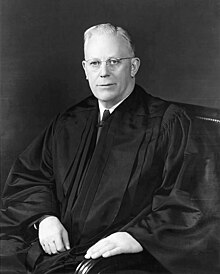My upbringing was somewhat unique in the way that I could have named one or two Supreme Court Justices by age 11. My mother is a lawyer who first studied at Duke University and later earned her law degree at George Mason University. "Antonin Scalia Law School Grad" rang proudly on her tongue and in her social media biographies. To her, truth is sacred and the law provides a way to honor God through her profession. Knowing this about my mom, what she did, and the institution she believed in, was a great foundation as I entered my United States History classes.
The Supreme Court of the United States (SCOTUS) is quite easy to understand partially because the Constitution never outlined the specifics, thus the first SCOTUS took the liberty to create a simplistic system. It was created in 1789 by the Third Article of the Constitution. The first SCOTUS had six members and they decided the term would be for life to cut out any bias timely politics brings to the table. They met for the first time February 2, 1790.
The Justices are nominated by the sitting U.S. President and confirmed by the U.S. Senate. There is a chief Justice who presides over the SCOTUS and takes care of more directional things. The first Chief Justice was John Jay.

First Chief Justice John Jay
Today there are nine Supreme Court Justices. It's the perfect number to keep majority but not by much, because while the law is the law our political and moral bias's play into our interpretations of the law. In addition to taking care of cases that come their way they also play a big role in impeachment trials as well as sit on the Board of Regency for the Smithsonian Institute. And above all else, the Supreme Court's job is to interpret the laws of the U.S. Constitution in a fair court. The precedents they set may prompt congress to create amendments or laws, but the courts simply apply situation to the Constitution.
While my mother's favorite, Antonin Scalia, was a notable Justice, there are other incredible notable Justices who have paved the way for this country in all cases Civil and Criminal.
One of the most important judiciary's from the ninetieth century is Justice John Marshall. He not only served as Chief Justice for 34 years, but he set a precedent for what the relationship between the judiciary and the rest of the government. During the case of Marbury v. Madison Marshall's judiciary decided that the principle of Judicial Review, or how the courts can strike down laws that they deem unconstitutional, would be a power of the courts.
Another incredibly influential Chief Justice was Earl Warren. He was part of the judiciary in the 1950's and 60's and decided on important things like Brown v. Board of Education, which ended segregation of schools and constituted the "Miranda Right's."

Chief Justice Earl Warren
Only in the last 60 years did the first Black man join the court and 40 years ago the first woman joined the court.
With the recent death of Justice Ruth Baders Ginsberg, President Trump and the Republican Party have a big decision to make. The Supreme Court has made and will continue to make some of the biggest decisions for us as Americans. The direction of our country depends on those justices and their interpretations of the constitution.
No comments:
Post a Comment